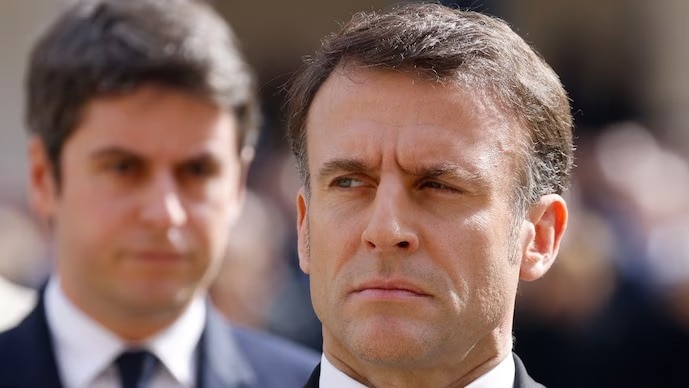2024-09-21 22:09:33
France finally got a new government Saturday in a shift to the right, as left-wing protesters took to the streets to denounce what they say is a denial of July’s election results. The cabinet announced by French President Emmanuel Macron and led by Prime Minister Michel Barnier comes 11 weeks after an inconclusive parliamentary election.
Barnier’s first major task will be to submit a 2025 budget plan addressing France’s financial situation, which the prime minister this week called “very serious”. Conservative Barnier is best known internationally for leading the European Union’s Brexit negotiations with the UK. More recently, he has had the difficult job of submitting a cabinet for Macron’s approval that has the best chance of surviving a no-confidence motion in parliament.
Talks on the distribution of the 39 cabinet posts continued right up to Saturday’s official announcement, insiders said, with moments of high tension between the president and his prime minister.
Opposition politicians from the left have already announced they will challenge his government with a confidence motion.
In the July election, a left-wing bloc called the New Popular Front (NFP) won the most parliamentary seats of any political bloc, but not enough for an overall majority. Macron argued that the left would be unable to muster enough support to form a government that would not immediately be brought down in parliament.
He turned instead to Barnier to lead a government drawing mostly on parliamentary support from Macron’s allies, as well as from the conservative Republicans (LR) and the centrists groups.
‘NO FUTURE’
Macron was counting, too, on a neutral stance from the far right — but the leader of the National Rally (RN) Jordan Bardella was quick to condemn the composition of the new government.
It marked “a return to Macronism” and so had “no future whatsoever”, he said Saturday.
At the other end of the political spectrum, far-left firebrand Jean-Luc Melenchon called the new lineup “a government of the general election losers”. France, he said, should “get rid” of the government “as soon as possible”. His party threatened to “increase popular pressure” on the government.
Socialist party chairman Oliver Faure dismissed Barnier’s cabinet as “a reactionary government that gives democracy the finger”.
“An unnatural government against nature,” was the verdict of Marine Tondelier, leader of The Ecologists party.
Among the new faces in key cabinet posts are Foreign Minister Jean-Noel Barrot. Conservative Bruno Retailleau took over at the interior ministry. His portfolio covers immigration and his right-wing credentials have created unease even in Macron’s own camp. Defence Minister Sebastien Lecornu, a close Macron ally, has kept his job.
The difficult job of submitting a budget plan to parliament next month falls to 33-year-old Antoine Armand, the new finance minister. He has previously served as head of parliament’s economic affairs commission.
But Greenpeace condemned the appointments of Republican Annie Genevard and Macronist Agnes Pannier-Runacher to the agriculture and climate briefs respectively.
“We need radical and ambitious action to tackle the climate and social crises, but this government already seems stuck in the outdated logic of the old world,” said its executive director for France Jean-Francois Julliard.
The only left-of-centre politician is little-known former Socialist Didier Migaud, named justice minister.
STREET PROTESTS
Even before the announcement, thousands of people took to the streets of Paris and other French cities Saturday to protest. They were objecting to a cabinet they say does not reflect the outcome of the parliamentary election. The new government has nobody from inside the NFP bloc.
“I am here because this outcome does not correspond to how people voted,” said Violette Bourguignon, 21, demonstrating in Paris. “I am worried and I’m angry. What is the point of having an election at all?” she said.
Barnier is to address parliament with a key policy speech on October 1. He then has the urgent task of submitting a budget plan to the National Assembly aimed at controlling France’s rising budget deficit and debt mountain — the first major test of his administration.
France was placed on a formal procedure for violating European Union budgetary rules before Barnier was picked as head of government.
France’s public-sector deficit is projected to reach around 5.6 percent of GDP this year and go over six percent in 2025. EU rules set a three-percent ceiling on deficits.
“I am discovering that the country’s budgetary situation is very serious,” Barnier said in a statement to AFP Wednesday, adding that the situation required “more than just pretty statements”.
The new cabinet’s first meeting is scheduled for Monday afternoon.
Emmanuel Macron, France elections, France protests, French right-wing, Michel Barnier
Source link
3 total views , 1 views today
